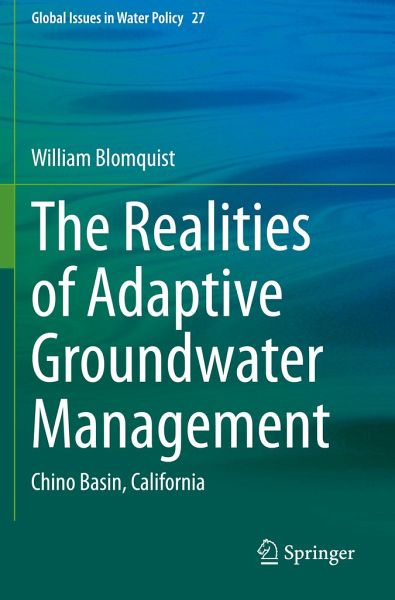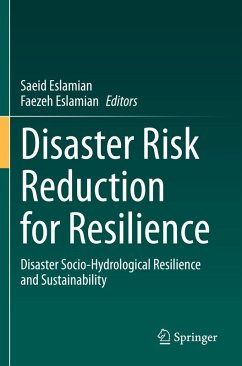
The Realities of Adaptive Groundwater Management
Chino Basin, California
Versandkostenfrei!
Versandfertig in 6-10 Tagen
106,99 €
inkl. MwSt.
Weitere Ausgaben:

PAYBACK Punkte
0 °P sammeln!
This book has three primary objectives. The first objective is to provide scholars with a more realistic view of adaptive management, without arguing against adaptive management. Adaptive management is necessary as well as desirable, but it is not easy, and demonstrating that through the Chino Basin experience is an important goal. The second objective is to provide practitioners with encouraging yet cautionary lessons about the challenges and benefits of an adaptive approach - in similar fashion as the first objective, the goal here is to endorse the adaptive approach but in a clear-eyed mann...
This book has three primary objectives. The first objective is to provide scholars with a more realistic view of adaptive management, without arguing against adaptive management. Adaptive management is necessary as well as desirable, but it is not easy, and demonstrating that through the Chino Basin experience is an important goal. The second objective is to provide practitioners with encouraging yet cautionary lessons about the challenges and benefits of an adaptive approach - in similar fashion as the first objective, the goal here is to endorse the adaptive approach but in a clear-eyed manner that clarifies how hard it is and how much it requires. A third objective is to show all audiences that resource governance systems can fail, change, and succeed. There is no such thing as an ideal institutional design that is guaranteed to work; rather, making institutional arrangements work entails learning and adjustment when they begin to show problems as they inevitably will.












